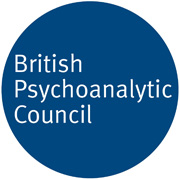Understanding Complex Post-Traumatic Stress Disorder (CPTSD)
Most people are familiar with the PTSD term; however, they do not know what CPTSD means. When someone is exposed to multiple, chronic, prolonged, and/or developmentally adverse traumatic events which they cannot escape, most often of an interpersonal nature (e.g. childhood sexual, physical, and emotional abuse and/ or neglect; torture, domestic or community violence; living in a war zone; being a victim of human trafficking, exposure to persistent bullying or narcissistic abuse), they are at high risk of developing CPTSD. It is a somewhat recent diagnosis and there is not enough research evidence to say how common this condition is. However, it is estimated that it affects about 1% to 8% of the world population and has about 50% prevalence in mental health facilities.
The symptoms consist of the same core symptoms of PTSD (read more about it here), however they are normally more severe, extensive, invasive, and disabling. Therefore, in comparison with the symptoms of PTSD, people with a diagnosis of CPTSD may experience more frequent, vivid flashbacks and nightmares; are more hypervigilant and paralysed with fear, panic and phobia in anticipation of an event or experience that reminds them of the traumatic events; take extreme measures to avoid triggers and reminders of the traumatic experiences; struggle more with insomnia; and experience marked feelings of dissociation, helplessness, impulsivity and isolation, which can have a more severe impact on their ability to cope and function in different domains of life on a daily basis.
Furthermore, the diagnosis of CPTSD has three additional groups of symptoms:
- Difficulty in regulating emotions, such as marked irritability and anger or feeling emotionally numb.
- Distorted beliefs about oneself as worthless or permanently damaged; poor and distorted self-image; and a negative self-concept driven by feelings of extreme guilt, shame, or failure, associated with the traumatic events.
- Difficulty maintaining stable relationships and trusting and feeling close to others.
As a result, people with this condition may have a more damaged self-esteem and struggle with their identity and a sense of self, have an increased tendency to engage in alcohol and drug misuse and self-destructive behaviours, and have significantly increased self-harming and suicidal thoughts, and suicidal attempts.
Comorbidity with other mental health issues
Most CPTSD sufferers may also have other mental health difficulties, such as depression, generalised anxiety, health anxiety, social anxiety, panic disorder and personality issues, which only exacerbate their symptoms and interfere with their recovery. What’s more, complex PTSD can be misdiagnosed for borderline personality disorder (BPD), as the symptoms are quite similar. The main key differences between the two are that people with CPTSD tend to overregulate their emotions, have a better sense of self, and frequently experience reliving symptoms of traumatic events, while those with a BPD diagnosis tend to underregulate their emotions, have a more fragile sense of self, and do not often experience reliving symptoms. However, in recent years it has been recognised that many BPD sufferers may (also) have CPTSD.
CPTSD and the body
Epidemiologic research suggests that both PTSD and complex PTSD are associated with significant negative health outcomes and medical issues, such as chronic pain, asthma, diabetes, digestive disorders, arthritis, and cardiovascular diseases. In addition, CPTSD sufferers may also experience high blood pressure, elevated heart rate, sleep disorders, debilitating joint and muscle pains, chronic fatigue, and migraine headaches.
This video here explains what CPTSD is
The main treatments for CPTSD are psychological therapies and medicine. Sometimes a combination of both is important for an effective outcome. I specialise in EMDR and attachment-informed EMDR therapy, which are highly effective therapies to treat this complex condition; to learn more about these therapeutic approaches, please read my other articles.
If you think that you may have complex PTSD and would like to get psychological support, please do get in touch here.









